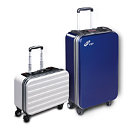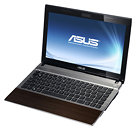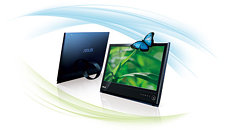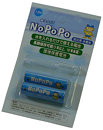Bluetti Shows off AC180T and AC240 Power Stations with Hot-Swappable Batteries
Bluetti shows us a unique new portable power solution in its 2024 International CES booth, and it has to do with space-saving, hot-swappable batteries. The AC180T packs two slots, each holding a 716 Wh solid-state battery. The battery has a grab-handle on top, and can be swapped out during operation. The grab handle has a basic LED-based charge state read-out. This solution saves you from having to lug a second enclosed battery expansion pack. Rather just carry several of these battery modules, and swap them out as needed. The AC180T delivers 1.8 kVA over four AC connectors, a number of USB-C and USB-A power delivery ports; and a 120 W DC car port. The unit supports fast-charging over an AC power source, but also takes in DC solar. The AC240 lacks battery hot-swapping, but features a single enclosed 1536 Wh battery, and can deliver 2.4 kVA. The AC240 has its claim to fame being IP65 water resistance, and concealed connectors.






















